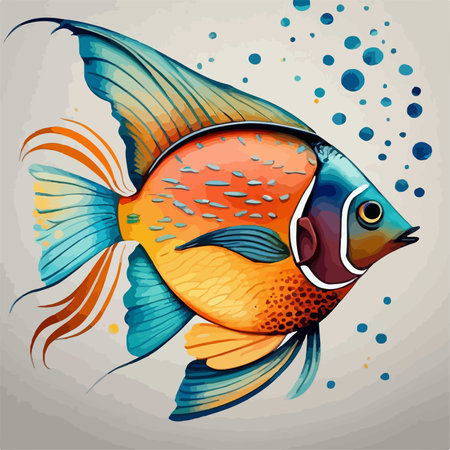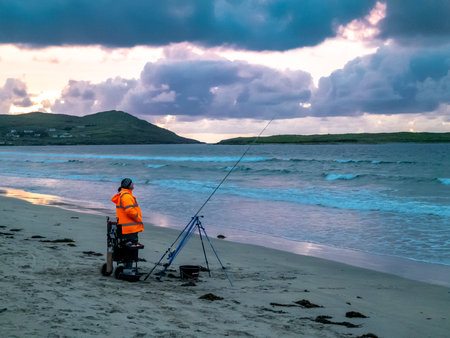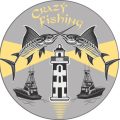Introduction to Ecotourism and Sea Fishing in the UK
Set against a backdrop of dramatic coastlines, rolling green hills, and storied fishing villages, the United Kingdom offers an exceptional gateway for travellers keen to explore ecotourism through guided sea fishing trips. This unique blend of responsible travel and rich maritime heritage invites visitors to discover the coastal wonders of England, Scotland, Wales, and Northern Ireland while treading lightly on nature. Ecotourism in the UK is not just about catching fish—its about immersing yourself in the rhythms of local life, respecting marine ecosystems, and embracing sustainable practices that ensure the preservation of these treasured landscapes. Guided sea fishing experiences provide the perfect opportunity to witness native marine wildlife, learn from local experts, and contribute positively to coastal communities. Whether you’re casting a line off Cornwall’s golden beaches or embarking on a wildlife-rich voyage around Scotland’s rugged isles, every adventure reveals new layers of Britain’s deep connection with its seas. Embark on this journey to appreciate how responsible angling and ecotourism can harmoniously coexist along the picturesque shores of the UK.
Wildlife You May Encounter on Guided Trips
Embarking on a guided sea fishing trip around the UK isn’t just about casting your line—it’s a passport to experiencing Britain’s vibrant marine wildlife in its natural element. From the rugged Scottish coasts to Cornwall’s turquoise bays, these eco-friendly excursions often surprise visitors with spectacular sightings of native creatures, both above and below the waves.
Common Marine Wildlife Sightings
Whether you’re setting sail from the wild Welsh coastline or venturing out from an English harbour, here’s a glimpse of the fascinating animals you might spot on your adventure:
| Wildlife | Where Youre Likely to Spot Them | Typical Behaviour |
|---|---|---|
| Grey Seals | Cornwall, Norfolk, Scottish Isles | Basking on rocks, curious around boats |
| Bottlenose Dolphins | Moray Firth, Cardigan Bay, Cornwall | Playful leaping, riding bow waves |
| Harbour Porpoises | Southwest England, Wales | Sleek surfacing near the shore |
| Puffins & Seabirds | Farne Islands, Pembrokeshire, Shetland | Nesting on cliffs, diving for fish |
| Basking Sharks (in season) | Cornwall, Isle of Man, Hebrides | Gliding at surface feeding on plankton |
A Birdwatcher’s Dream at Sea
If you’ve got a keen eye for birdlife, keep your binoculars handy. Guided trips often pass by dramatic seabird colonies where puffins in their colourful summer plumage zip overhead and gannets plunge spectacularly into the waves. It’s not unusual to see razorbills, guillemots and even majestic ospreys hunting along the coast.
Conservation and Responsible Encounters
Many local skippers are passionate about marine conservation and will share insights into how to enjoy these encounters responsibly—respecting wildlife boundaries and ensuring minimal disturbance. This thoughtful approach is what makes UK sea fishing tours truly unique: a chance to connect with nature while preserving it for future generations.

3. Sustainable Practices and Conservation Efforts
When it comes to guided sea fishing trips in the UK, sustainability lies at the very heart of the experience. Many local operators are passionate about protecting Britain’s unique marine habitats, and they work closely with conservation organisations to ensure that every trip treads lightly on the environment. Through a blend of education and responsible angling, guests are introduced to a range of local conservation initiatives designed to safeguard native species and delicate coastal ecosystems for future generations.
One of the key practices you’ll encounter is catch-and-release fishing, which is widely promoted across UK waters. Anglers are encouraged to handle fish carefully, using barbless hooks and following best-practice guidelines to minimise stress or injury to the wildlife. This approach allows visitors to enjoy the thrill of sea fishing while also contributing directly to population monitoring and scientific research—many guides even invite guests to log their catches with national databases, supporting ongoing conservation efforts.
Guided trips often include informative talks about the impact of overfishing, marine pollution, and habitat loss, helping guests appreciate why these sustainable measures matter. Skippers and crew share first-hand stories about local projects—such as seagrass restoration in Cornwall or lobster hatcheries in Scotland—that are making real differences in marine biodiversity. By weaving these insights into your adventure, guided sea fishing tours offer not just a relaxing day out on the water, but also a deeper understanding of how everyone can play a role in preserving the UK’s extraordinary marine life.
4. Top Destinations for Marine Wildlife Encounters
If you’re keen to combine sea fishing with the thrill of spotting marine wildlife, the UK’s coastline offers a diverse array of hotspots that guarantee memorable experiences. From the rugged coves of Cornwall to Scotland’s wild west coast and the fossil-rich shores of Dorset, each region has its own unique charm and abundance of wildlife. Below, we explore some of the most celebrated destinations for guided sea fishing trips where ecotourism and marine encounters go hand in hand.
Cornwall: Where Dolphins Dance
Cornwall is famed for its crystal-clear waters, secluded bays, and rich marine life. On a guided fishing trip here, it’s not uncommon to spot pods of playful dolphins trailing your boat or seals basking on rocky outcrops. The area is particularly popular for sustainable mackerel and bass fishing, often paired with close-up views of seabirds like gannets and puffins. Many local charters are committed to eco-friendly practices, ensuring the region remains a haven for both anglers and wildlife enthusiasts.
Scotland’s West Coast: Untamed Beauty and Iconic Species
The wild and dramatic west coast of Scotland offers unparalleled opportunities for those seeking both adventure and tranquillity. Here, you might encounter majestic basking sharks gliding beneath the waves or catch glimpses of otters along remote shorelines. Fishing guides in this region often tailor trips to include wildlife watching – think sea eagles soaring overhead as you cast your line for pollock or cod. The unspoilt scenery adds a touch of magic to every outing.
Dorset: Fossils, Fishing, and Friendly Seals
Dorset’s Jurassic Coast is not only a UNESCO World Heritage Site but also a hotspot for sea fishing combined with marine wildlife viewing. Guided trips frequently cruise past colonies of grey seals, while the surrounding waters are home to harbour porpoises and an impressive variety of fish species. Dorset’s charters are known for their focus on responsible tourism, offering informative commentary about local conservation efforts as you reel in your catch.
Popular Marine Wildlife Encounter Destinations at a Glance
| Region | Typical Wildlife Sightings | Fishing Highlights |
|---|---|---|
| Cornwall | Dolphins, seals, seabirds | Mackerel, bass |
| Scotland’s West Coast | Basking sharks, otters, sea eagles | Pollock, cod |
| Dorset | Grey seals, harbour porpoises | Bream, wrasse |
Tips for Responsible Wildlife Watching
When embarking on these adventures, always follow your guide’s instructions regarding respectful wildlife viewing—keep noise to a minimum and never feed or approach animals too closely. This ensures both your safety and the continued health of these extraordinary habitats.
5. What To Expect on a Guided Sea Fishing Experience
Embarking on a guided sea fishing trip in the UK is more than just casting lines; it’s an immersive adventure steeped in local traditions and camaraderie. As you step aboard, you’ll be greeted by seasoned skippers—often with decades of experience plying British coastal waters—who share their expertise with infectious enthusiasm. Their knowledge not only ensures a safe voyage but also offers invaluable tips on sustainable angling and respecting marine habitats.
The day typically begins with a hearty briefing, where you’ll learn about the species likely to be encountered, from mackerel and cod to the occasional sighting of playful dolphins or curious seals. The relaxed, friendly banter among fellow anglers creates an inclusive atmosphere, making novices feel as welcome as old hands. Don’t be surprised if you find yourself swapping stories over a steaming cuppa while waiting for a bite.
Throughout your journey, there’s plenty of time to soak up panoramic coastal views and spot seabirds gliding overhead. Some trips offer hands-on demonstrations—think bait preparation and sustainable catch-and-release techniques—ensuring everyone gets involved. The focus remains firmly on ecotourism: guides often point out environmental initiatives and encourage respect for marine life at every turn.
As lines are reeled in and the day draws to a close, there’s a shared sense of achievement—whether your tally is plentiful or you simply revelled in the fresh sea air and wildlife encounters. Many operators offer the chance to take home your catch (prepared according to local guidelines), giving you a taste of Britain’s maritime heritage long after you’ve returned ashore.
6. Travel Tips and Local Insights
Planning an unforgettable ecotourism adventure on a guided sea fishing trip in the UK requires a blend of local know-how, respect for nature, and smart travel choices. Here’s how to make the most of your journey while honouring British culture and protecting marine life.
Practical Planning for Your Adventure
Start by researching reputable, eco-conscious tour operators who are committed to sustainable fishing practices. Book well in advance, especially during peak wildlife seasons. The UK coastline offers diverse experiences from Cornwall’s rugged shores to Scotland’s wild islands—consider what marine species you’d like to encounter, as this will guide your destination choice.
Sustainable Travel Choices
Opt for public transport where possible—Britain’s rail and coach networks make reaching coastal hubs both easy and environmentally friendly. If driving is necessary, consider carpooling or choosing low-emission vehicles. Bring reusable water bottles and avoid single-use plastics to minimise your environmental footprint during your stay.
Respecting Local Cultures & Communities
Embrace the local customs by engaging with residents respectfully—Brits appreciate good manners, so a simple “please” and “thank you” go a long way. Support independent shops and seafood cafes that champion local produce. Always follow your guide’s instructions regarding protected areas and wildlife viewing etiquette; disturbing habitats or leaving litter is frowned upon.
Best Times for Marine Wildlife Encounters
The UK offers year-round opportunities for spotting marine wildlife, but timing can greatly enhance your experience. Spring and summer (April–September) are prime months for mackerel runs, basking sharks off Cornwall, and puffin sightings along northern coasts. Autumn brings rich harvests of shellfish and quieter beaches. Check local wildlife calendars for specific migration or breeding seasons to plan your trip accordingly.
Final Local Insight
British weather is famously changeable—pack layers, waterproofs, and sturdy footwear regardless of the forecast. Most importantly, approach each day with curiosity and flexibility: it’s the British way to make the most of every seaside breeze and unexpected wildlife encounter!


